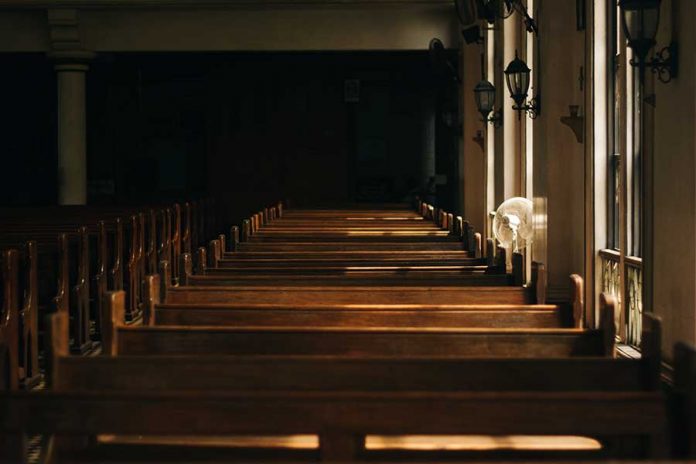The United Methodist Church has proposed a split into more than one denomination. The proposal was made to resolve continuing conflict over LGBT clergy and same-sex marriage, according to the church’s official news agency, United Methodist News Service.
A 16-member group of bishops and church leaders crafted the proposal, which declares, “A separation was the best means to resolve our differences, allowing each part of the Church to remain true to its theological understanding while recognizing the dignity, equality, integrity, and respect of every person.”
The proposal includes $25 million for the “traditionalist Methodist denomination.” Another $2 million would be set aside for other potential new denominations. And $39 million will be allocated over eight years to “support communities historically marginalized by racism.”
The main church would now accept and embrace LGBT people and clergy and recognize same-sex marriage. Currently, the UMC’s Book of Discipline denounces the “practice of homosexuality” as “incompatible with Christian teaching.”
The decision to restructure the church is the latest move by UMC after a series of battles over the role and acceptance of LGBT people within the church. It must be formalized at the annual conference in May to go into effect. Since 2016, hundreds of lesbian and gay clergy have come out in UMC, creating yet more tension within the church. UMC is the second-largest Protestant denomination in the U.S. In February 2019, the annual conference voted to reinforce the church’s stance against ordaining gay and lesbian clergy and performing same-sex weddings.
Philadelphia has continually been the locus of conflict for the UMC. In 1784, Richard Allen, a freed slave, became a Methodist preacher in Philadelphia. In 1787, after objecting to the segregation of Black Methodists and himself, he split from the church, forming the African Methodist Episcopal church.
In 2004, Rev. Beth Stroud, 34, was tried and convicted by a 13-member jury of the UMC and defrocked as a minister for being a lesbian. Stroud had been pastor at the First United Methodist Church of Germantown. UMC regulations forbid “self-avowed, practicing homosexuals” as clergy and Stroud had acknowledged that she was in a committed relationship with her longtime partner.
In 2013, Rev. Frank Schaefer was tried in Philadelphia for officiating at the wedding of his gay son, Tim Schaefer. He was convicted and, like Stroud, defrocked. In 2014, UMC’s judicial body in Pennsylvania voted to allow Schaefer to remain an ordained minister, but the decision was based on a procedural issue, not gay marriage.
Local response to the proposal split the church has been mixed with some applauding the move and others sad that it was necessary.
Meredith Thomas, a lifelong Methodist and “a practicing lesbian,” said, “I am just sad that it has come to this. Basically, the so-called ‘traditionalists’ are saying they would rather tear the church in two than accept that gay people should be equal at every level in the church. “
Thomas said, “What about the LGBT people who end up in the hater branch of the church? Their full personhood will still be denied if they want to be married or become clergy.”
Rev. Dr. Kipp Gilmore-Clough is an ordained Methodist pastor and Ph.D. He is Acting Senior Pastor at Chestnut Hill United Church. CHUC has been in the vanguard of acceptance and inclusion of LGBTQ people, doing outreach to the queer community. Staff even note their pronouns on the church directory and website.
Gilmore-Clough, who identifies as a “cisgender, straight man,” has a more hopeful view than Thomas. He told PGN, “The proposed protocol for breaking the United Methodist Church into multiple Methodist denominations is acknowledgment of what has long been evident: that separation is the best way forward. It remains to be seen what this looks like once it has made its way through the General Conference process in May.”
He said, “My deepest hope is not only for a gracious separation but also that any agreement include mechanisms for repairing and healing some of the damage that has been done through generations of anti-queer policy and practice.”
On Twitter, Zach Wilcha, executive director of Independence Business Alliance and one of PGN’s persons of the year, wrote, “I was raised in an affirming, welcoming, small-town Methodist congregation. It set my moral compass. It still heavily influences the way I think about service in my personal & professional life. I hope a split heals all who suffered from the leadership’s accommodation of bigotry.”
New York Conference Bishop Thomas Bickerton, part of the group behind the proposal, told the official United Methodist News Service that heated debate at the conference demonstrated “the line in the sand had turned into a canyon.”
He added, “The impasse is such that we have come to the realization that we just can’t stay that way any longer.”
At the conference in February 2019, the denomination decided that United Methodist churches like CHUC and clergy like Gilmore-Clough could face removal if they do not affirm its stance against gay marriage and non-celibate LGBT clergy by 2021.
The new proposal calls for a traditionalist Methodist denomination that would continue its opposition to gay marriage and the ordination to LGBT clergy. A separate denomination would allow same-sex weddings and gay clergy.

